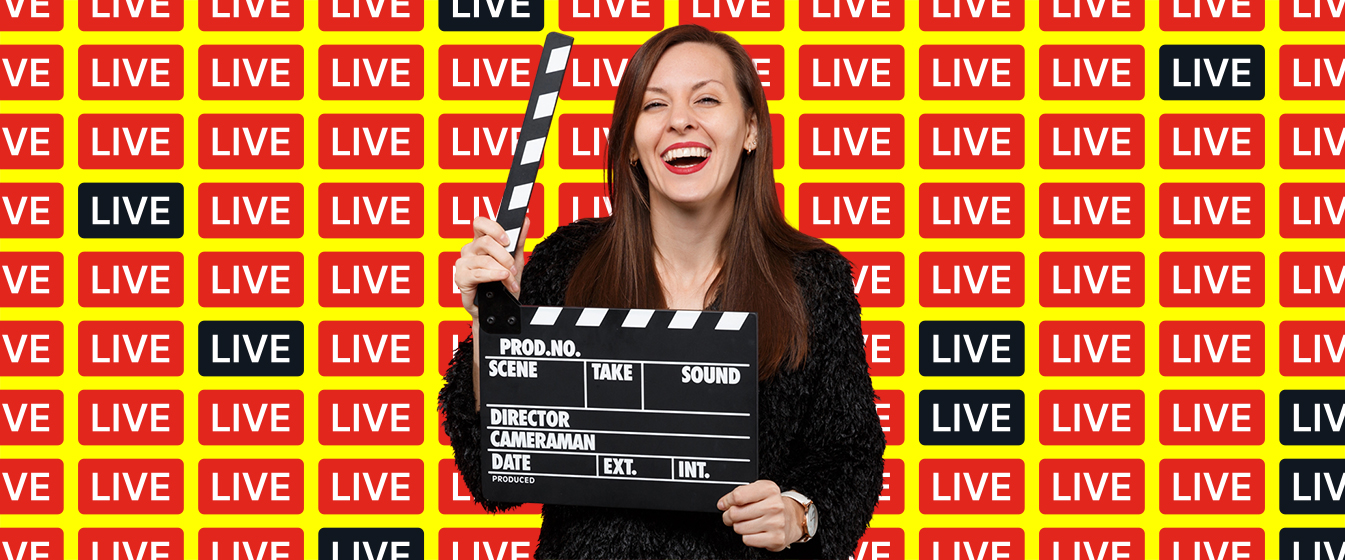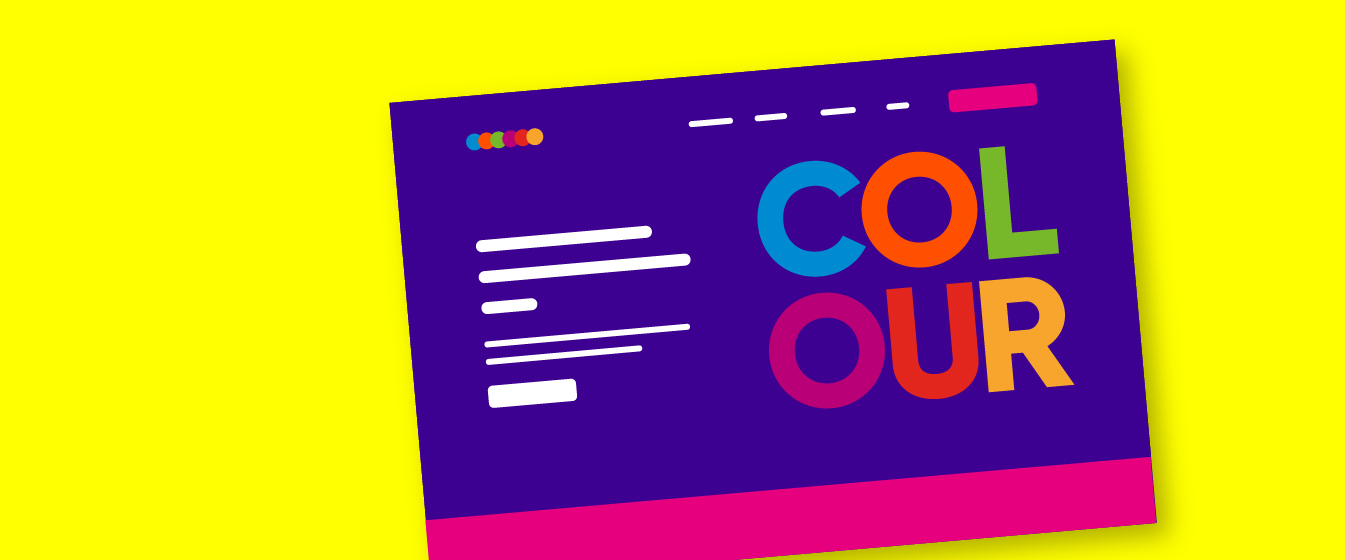Blog: Event design
Designing events for Gen Z attendees
8 October 2024 minute read

Much is written about just how different generation Z are from their millennial or Gen X predecessors.
Gen Z, of course, refers to people born between 1996 and 2010 – a cohort whose identity has been shaped, above all by the digital age, but also by heightened climate anxiety, a shifting financial landscape, and the upheaval of COVID-19.
Consumer marketers are somewhat obsessed with understanding how these formative experiences have coloured this particular generation’s beliefs and behaviours – and what this might mean in terms of selling them things. The assumption here being that Gen Z does not consume information, take decisions, or prioritise value propositions in quite the same way as those of us over … ahem … thirty.
And since Gen Z are starting to move through the workforce and attend conferences and meetings, we thought it would be interesting to look at some of the emerging research on their attitudes and characteristics through the lens of event design.
So here goes.
What’s the big deal about Gen Z
Well basically, this is the first generation of ‘digital natives’ in the true sense – having never known a world without the internet. This, coupled with the fact they had a worldwide pandemic and a cost-of-living crisis to contend with during their formative years, seems to have profoundly impacted their personality and values, making them a rather different audience to get to grips with.
Here are 10 Gen Z characteristics based on real consumer data – each of which presents challenges and opportunities for event marketers.
1They’re hesitant about in-person gatherings
The heady cocktail of social media apps and COVID has conspired to make Gen Z both reluctant and curious when it comes to in-person events. Understanding this dynamic and making format adjustments to meet their needs (while also making the effort to show them the in-person ropes) will help future-proof your event.
Gen Z customers are either early in their careers or entering the workforce soon, so attending business events is new. Because they don’t yet know how to make the most of in-person experiences, they can be reluctant to participate or even show up. So take the opportunity to be their event tour guide.
Offer special education tracks, seminars, and networking opportunities geared towards first-time attendees and young professionals.
Provide opportunities for them to connect with each other well before the event starts using your attendee app, social media and other digital tools that will prepare them to maximise their experience on-site.
Think about how you might demystify each step in the programme so they know when and where to be (with plenty of elective choices), what to expect, and quick tips for navigating and designing their personal schedule.
Consider cheat sheets, pre-event notifications, and pre-track alerts to help orientate first-time delegates and build anticipation.

2They want a seamless blend of in-person and digital engagement
Gen Z are the first generation to come of age in a world where digital and IRL experiences are becoming blurred.
As technology has developed and become more sophisticated, there is now a blurring of the digital and analogue worlds as the two realities become increasingly intertwined. It’s a phenomenon referred to (perhaps a touch pretentiously) as ‘liquid reality.’
The most obvious manifestation of this today is augmented reality and the metaverse – both of which have generated a great deal of hype in the meetings industry.
Certainly, immersive VR experiences or augmented reality exhibits can transform how attendees engage with content in a dynamic and memorable way. A VR simulation could allow attendees to explore a new product in a virtual environment, providing a deeper understanding and connection to the material.
At a minimum, Gen Z attendees expect interactive technologies such as session chat, live polling and Q&A to make sessions more engaging by allowing real-time audience participation.
Similarly, they expect to be able to reach out via the event app and connect with attendees with similar interests, facilitating meaningful connections that might not happen otherwise. Gen X and Millennials are relatively comfortable reading badges and striking up conversations from cold at the coffee station. Gen Z expects to explore networking potential in the digital realm first – before they connect IRL.
Events that create an environment where attendees feel emotionally engaged and connected using a mix of physical and digital elements will be the ones who really reach Gen Z.
3They’re motivated by altruism
Unlike older generations, Gen Zers want to attend events that align with their values and contribute positively to the world and wider society.
Openly communicating your event’s values can help build trust and connection with Gen Z attendees who want an authentic sense of the identity and purpose of your event in the professional world.
In other words, what does it do? How does it help – both your community and society as a whole.
Consider whether your event has any untapped opportunities to generate direct social impact and how you might integrate this into your agenda.
For example: could you hold a workshop that would be of value to local schoolkids / students? Is there a way of supporting / raising money for a local charity or community group?
Could you organise a litter-pick instead of (or as an option for) another boozy reception?
Even if you’re not ready to incorporate something radical, you can probably do more to highlight your event’s existing contribution to the local economy. Think about sourcing all your food and beverage from local suppliers, and featuring some cool information about them and the region during your dinner or receptions.
Anything that helps establish a real connection between your event brand and a positive impact on the lives of people is a plus with Gen Z customers.

4They’re more diverse than previous generations
Compared to other generations, Gen Zers are 2.5x more likely to identify as non-white; 4x more likely to identify as neurodivergent and 1.5x more likely to say they have a physical disability.
While people of all generations now expect to see diversity and inclusivity baked into the events they attend – for Gen Zers it’s non-negotiable and they will scrutinise your agenda, speaker line-up and other content for evidence that your meeting really does offer a welcoming environment for attendees from all backgrounds.
5They expect brands to address them as individuals
As much as they value inclusivity, Gen Z expects brands to know exactly who they are and to tailor their offers accordingly.
This is not a cohort that respond well to brands targeting them with a one-size-fits-all approach. They want to be recognised for their complexities, differences, needs and anxieties, and supported in a meaningful way.
For event marketers, this means embracing personalisation like never before.
Starting from the first marketing communication – all the way through registration to the on-site experience itself – you need to leverage every single data point you have on individual contacts and put it to work in highly customised emails, landing pages, registration journeys, tracks, schedules and messaging.
You’ll need the right technology and workflows in place to anticipate and meet attendee needs in real time. This means leveraging data analytics and marketing automation to provide customised content, networking opportunities, and recommendations that adapt to the attendee’s journey throughout the event.
For example, if an attendee shows interest in a particular topic, be ready to dynamically suggest related sessions or relevant exhibitors to visit. This level of personalisation enhances the attendee experience, making it more meaningful and valuable.
At the same time, integrating these technologies will make your events more accessible and inclusive – broadening their reach and enriching the diversity of perspectives and experiences.
Events that can solve this equation will win the battle for Gen Z loyalty.

6They don’t do clunky tech
Having entered the workplace before the internet, boomers and some Gen Xers might, might just forgive a slightly dated, clunky event website and registration form – providing they’re super-interested in your content.
Millennials, not so much. As for Gen Z? They’ll up and leave at the first sign of friction.
This is the generation that didn’t experience e-commerce prior to Amazon, eBay, Deliveroo and Uber. So they expect effortless, frictionless purchase journeys – supported by all the decision-making information they need.
It goes without saying that your site and landing pages need to be built with a mobile-first approach and to load lightning-fast.
They also need to be visually compelling, with clear reasons to register, a well-thought-through information hierarchy and plenty of social proof.
Gen Z likes to research a proposition thoroughly on-line before they commit to buy – and they are not going to call you on the phone with any unanswered questions. They’re going to bounce to another site.
When it comes to registration screens, do not make customers enter any data you already hold on them. Pre-fill everything you know and enable predictive inputs for the rest.
Avoid asking for too much information and remove unnecessary fields. Handle input validation inline and do it well.
Gen Z value convenience, speed, and customisation in their digital interactions. Your attendee app, networking and audience engagement tools will be held to similarly high standards as your event site and registration flow.
7They’re extremely data-savvy
B2B events run on data. Whether collected pre-event via the registration process, on on-site through interaction and behaviour-tracking, attendee data is very much the ‘oil’ of business events.
Gen Z attendees present fresh challenges and opportunities in this regard because they tend to be entrepreneurial with their own data and exceptionally good at monetising it. They are also very savvy to how companies use it. They want to know who is using their data and if they can choose to sell it or not sell it to whoever they like.
The good news is that Gen Z will freely give their data in return for a value exchange. Their data is not precious to them; they are happy to share it and, if it gives them a better experience, they are even positive about giving it away.
They are, however, highly sensitive to how their data is gathered. Despite being comfortable with all things digital, this is a generation that views clandestine measures as wholly inappropriate and damaging to brands’ reputations.
Event brands that operate with a transparent and honest policy about the ways they collect data stand a better chance of gaining a loyal following than those that don’t.
The old business model of traditional B2B event organisers and publishers tended to be a one-way street, where participants handed over all their data – no questions asked – for media companies to leverage as they saw fit. Those days are very much numbered.

8They communicate primarily through social media
Most event marketers already use a mix of channels to promote their events, but Gen Z responds best to social media. YouTube and TikTok are their platforms of choice, so go all-in on video content and even video ads to encourage more event signups.
Gen Z doesn’t respond as well to traditional advertising. If you want them to hear about your event, consider partnering with an influencer in your niche with a Gen Z audience. Influencers tend to be able to package branded messaging in a more engaging and genuine way, which resonates with Gen Z vs conventional ad placement.
Consider how ‘Instagramable’ your content and physical event set-up is too. If your event radiates a fun aesthetic that stands out from the bland B2B gatherings of yore, Gen Z attendees will snap those selfies and gush about it on social media.
Think in terms of amusing, memorable props and backdrops at the venue itself. Pull together a few witty memes and snackable video assets that are ready to share online.
Photo booths are often good value, especially if you create a quirky / amusing / beautiful seating area or image for people to pose in.
If funds are available, having a celebrity or influencer at your event can help keep cameras rolling. If you’re on a tighter budget, even having a celebrity impersonator or someone dressed as a mascot can create a buzz and get you social traction.
Don’t forget to pick a hashtag carefully and promote it relentlessly
9They love to travel
Gen Z attendees value experiences and personal growth more than acquisitive consumption. According to a recent study by the Global Business Travel Association (GBTA), 83% of Gen Z business travellers have added leisure components to their work trips.
Welcome to the brave new world of ‘bleisure’.
Put simply, bleisure travel is the combination of business travel with leisure travel – in other words, tacking on a few days onto a business trip for leisure purposes.
Bleisure is like catnip to Gen Zers because it taps into their love of travel, and their desire to save money – plus their refusal to be defined solely by the job they do.
Business trips can be incredibly rewarding, but they can also be tiring – from long flights to time spent away from loved ones. By adding leisure into the mix, their appeal increases dramatically with Gen Z (and older) delegates.
Event planners can tap into this simply by highlighting nearby attractions and letting attendees know about events happening during their stay (festivals, concerts, art exhibitions etc).
Better yet, mix culture and entertainment into the conference agenda itself. By using historically significant venues and culturally typical entertainment – you’ll significantly raise the value proposition for Gen Z customers looking for a mini-break within the main event.
Larger events have the option to partner with local travel specialists to offer post-meeting tours and partners’ programmes – both of which are making something of a surprising comeback among millennial and Gen Z attendees.

10They’re highly financially aware
More Gen Zs grew up in poverty than Millennials, Gen X, or Baby Boomers. Having watched their parents struggle, Gen Z tends to be more pragmatic and financially minded.
This can make them tough customers for event marketers because they need a lot of information and reassurance before they make high dollar buying decisions.
While Millennials and past generations tended to be loyal to brands, Gen Z is more transactional – ready to shop around and prioritising value.
For organisers of paid events, this means going back to first principles and articulating the specific nature and quality of content and networking opportunities you can offer your audience – rather than relying on any must-attend status your event may have built up over years.
Gen Z wants value, but this is also a generation that will pay for quality. It just wants to see some evidence as opposed to shiny marketing gloss. If you can, be transparent about how your event runs, what’s happening behind the scenes and what it takes to pull it together. Share your origin story. Introduce your team and show attendees where their money is going. Many, especially Gen Z, will appreciate and often reward the authenticity.
In summary
As Gen Z enters the world of work, their likes, dislikes and passions will come to dominate the strategic direction of event marketing.
Reaching Gen Zers requires a deep understanding of their values, preferences, and behaviours.
They subscribe to brands that go out of their way to get to know their needs. So event planners and marketers can’t simply apply the same blanket rules they did with Millennials.
But by establishing a clear mission, being transparent, and creating entertaining and inclusive experiences, event owners can capture Gen Z’s attention and loyalty.
The opportunity is vast – and it’s growing every day.



